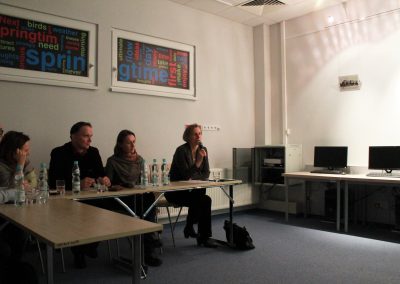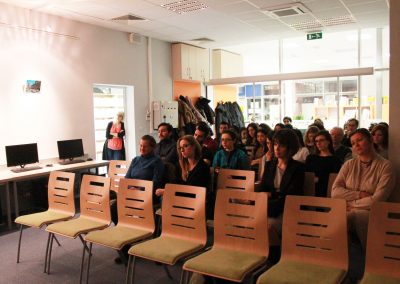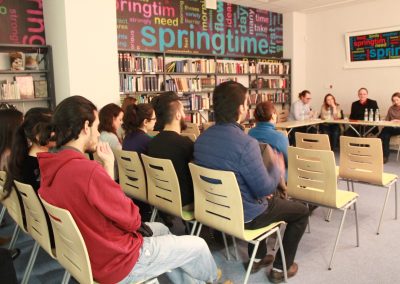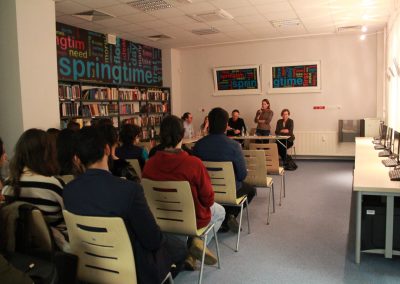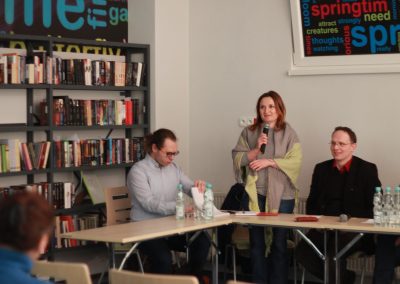On Wednesday we met in the Municipal Library Fil. 4 to participate in the debate entitled Gender ideology(ies): Man and woman – different by nature, inequal by society? We tried to find the answer to this question with our four guests: sociologists Borys Cymbrowski and Anna Czerner, philologist Katarzyna Molek-Kozakowska and biologist Elżbieta Pogoda.
We were aware that for most people the term gender is unfamiliar or even unfriendly, especially when someone is not a philologist or a social researcher, so we started with the basic questions: what gender is, how it exists in our respective fields of studies, and if there exists gender ideology. We can say that gender in general is about social consequences of being men, women or the others, because in the opinion of Elżbieta Pogoda even from a biological point of view there are more than only two sexes. And there is no evidence that one sex has an advantage over another.
In Polish media we encounter some false beliefs about the meaning of the word “gender”. But as Borys Cymbrowski mentioned it is a problem of confusion of nature with culture, because in the Polish language we have only one word (płeć) for gender and for sex. So some commentators confuse biological meaning with the cultural one. They accuse gender scholars of promoting a dangerous ideology which tries to convince people to choose their sex. As Anna Czerner said, the truth is that in the social sciences gender was a neutral category to analyse the relations between people in society, but unfortunately some institutions and politicians took one of the least popular topics in gender studies and used it as a basis to create and apply gender ideology as a political tool.
After that we focused mostly on language aspects within gender issues. Katarzyna Molek-Kozakowska indicated that for her it was easier to introduce herself in English than in Polish, because in Polish most names of academic professions have only a masculine gender, or even if it has a female gender, masculine forms sound more serious and more prestigious. But language is not a constant phenomenon – it is changing all the time. Twenty years ago we considered some female forms of words as strange, but today we take them for granted. We concluded that it is important to include more women-related forms to language, and it is one of the main catalysts of social changes in the public sphere.
We are really glad we could discuss it with you and with the citizens of Opole. We would like to thank you all for your presence and participation, and we hope to see you soon during another discussion. The aim of the whole debate was to clarify a little the problem of gender, but two hours is a short time when you are discussing such an important and complicated topic – so we treat this meeting only as a start. The debate is still open.
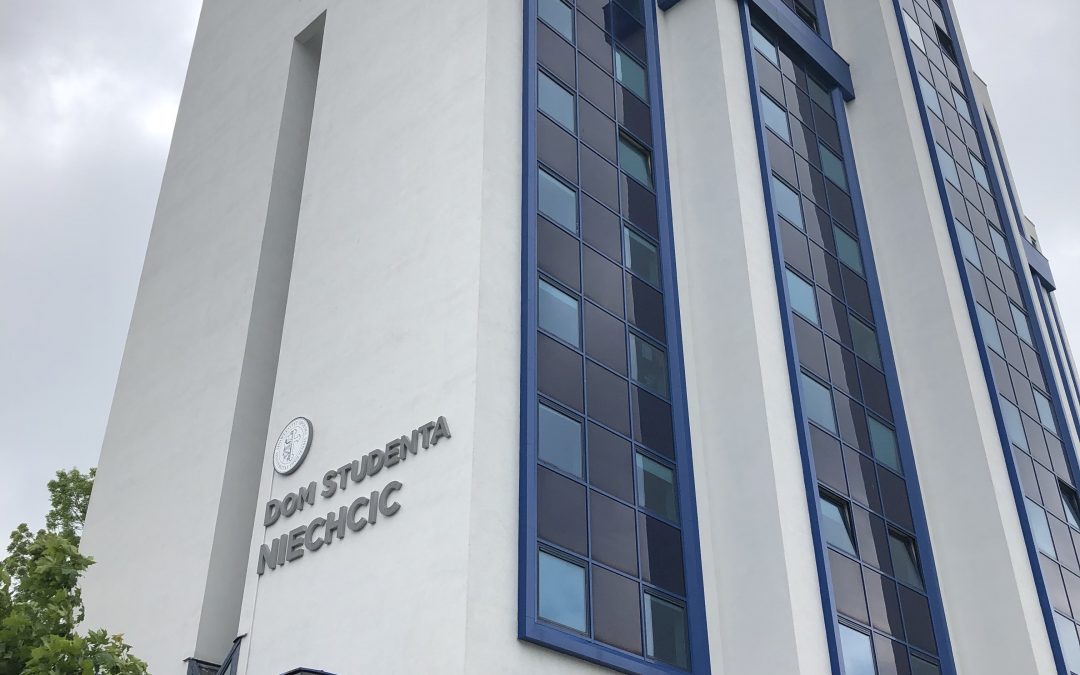
Dormitories to be closed from 24.00 till 6 a.m.
Resolution No. 8/2020 of Chancellor of the University of Opole of 27 May 2020 on closing Dormitories after 24.00 On the basis of Art.15 para. 2 of the Organizational Regulations of the University of Opole (Ordinance No. 47/2019 of the Rector of the University of...
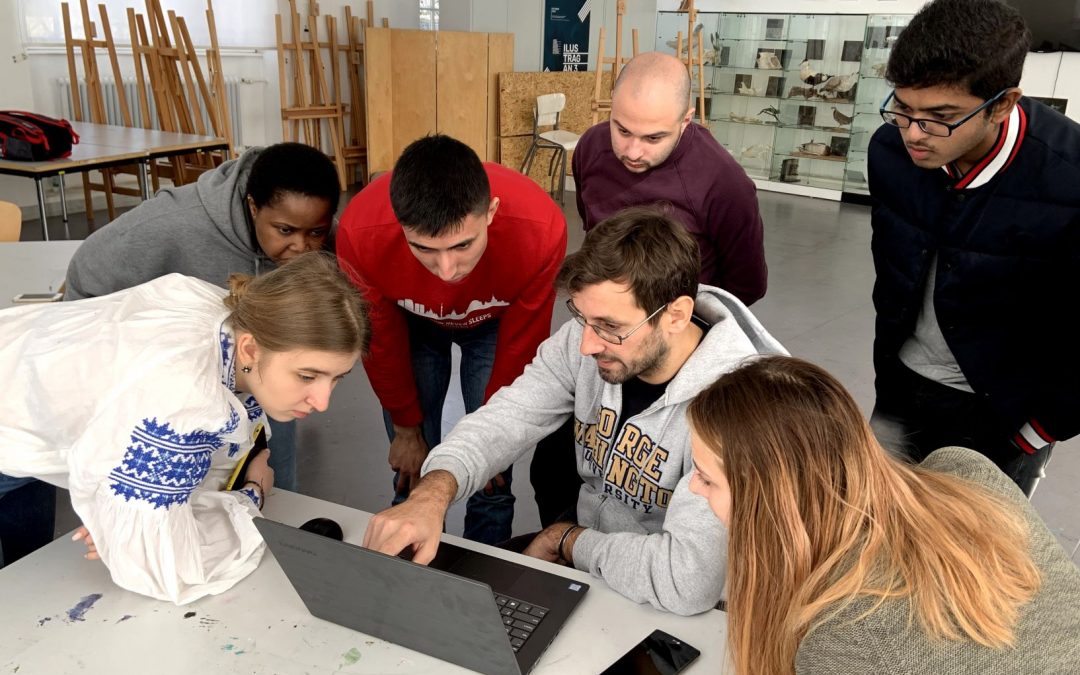
Visegrad Grant for Intercultural Communication
Sociologists from the Intercultural Communication Programme received a grant from the International Visegrad Fund for the implementation of the Borders & Dialogue: Past and Present of the Czech-Polish Borderland project. The leader of the project is the...
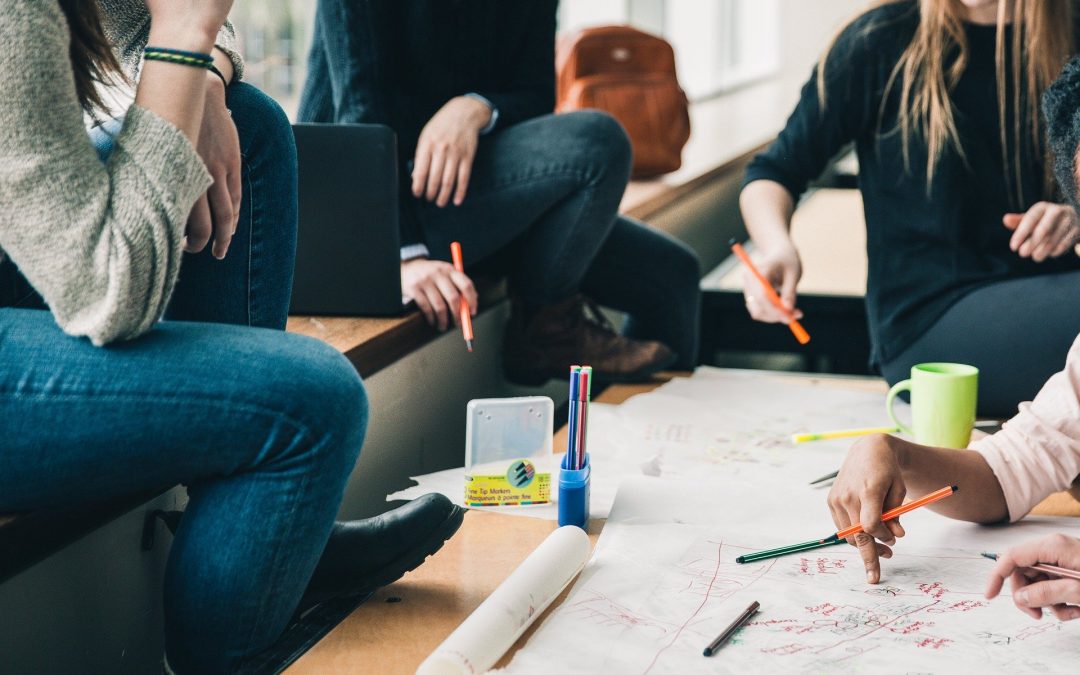
Variable course registration for winter semester 2020/2021
Dear Students! Next Monday, June, 1st, registration for the winter semester variable course opens. Please check in advance at your USOS-account whether you have access to registration, so you can freely choose the course when the registration starts. As usual, we...
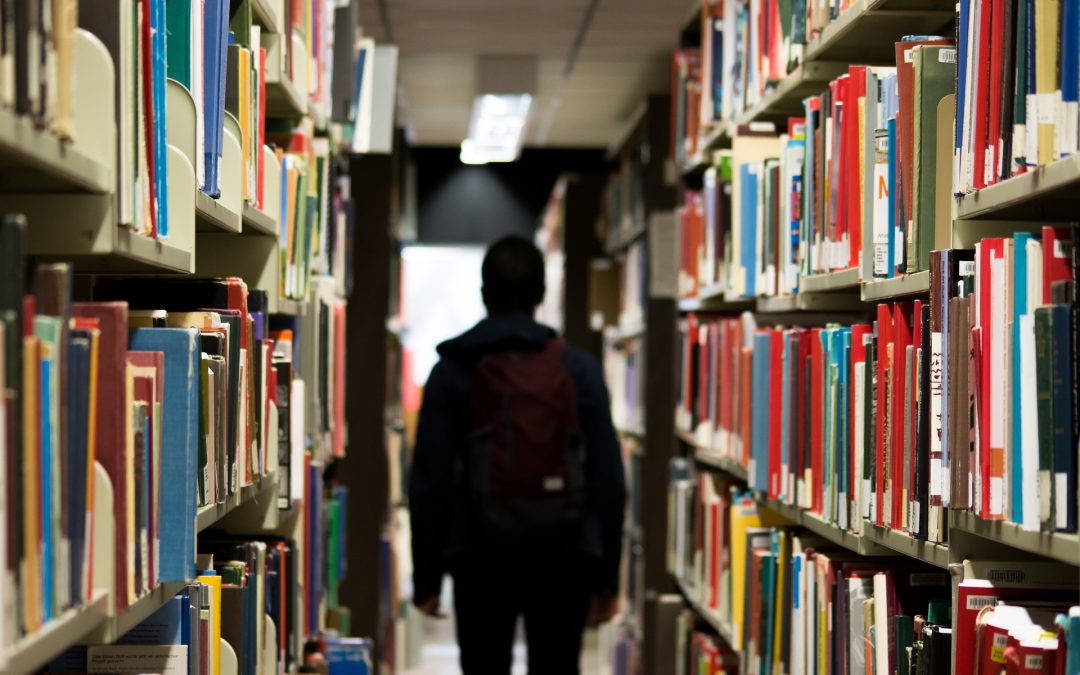
The libraries are re-opening
Dear Students! We are happy to inform you that the libraries of the University of Opole are re-opening! The Main Library and specialized libraries of the University of Opole, except for the library of the Institute of Pedagogical Sciences, will be open from May...
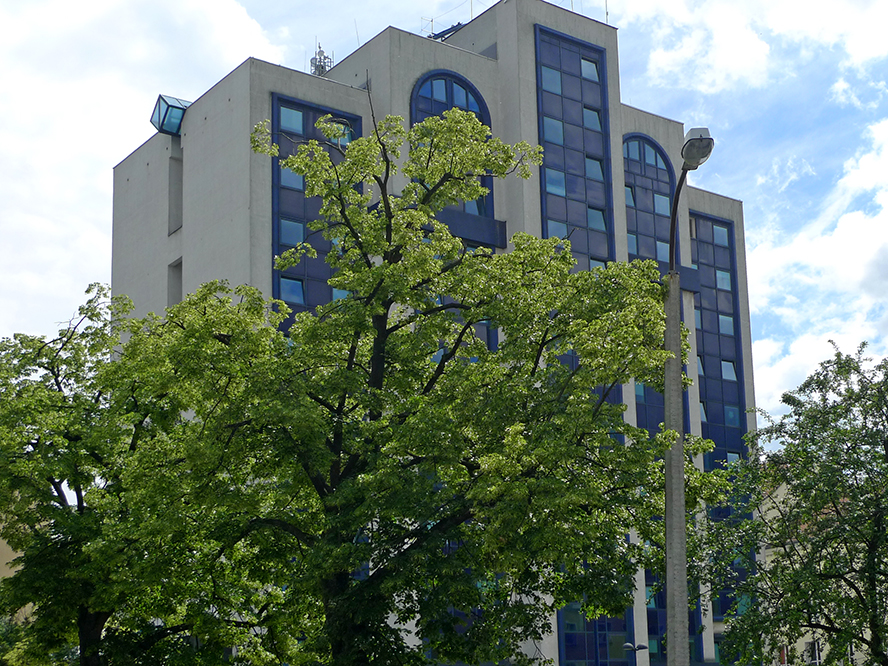
Student Dormitories – new rules of accommodation
Dear Students! Please check the new Resolution no 7/2020 of the Chancellor of the University of Opole on the return of students, Ph.D.candidates, and other persons to Student Dormitories of the University of Opole and principles of accommodation of new persons....

“Project Gambia” – join charity program!
Dear Students! we encourage you to take part in the charity program "Project Gambia" which is run by the students of the University of Opole and the University of Technology in Opole. Gambia is a small impoverished country in Western Africa. You can support its local...
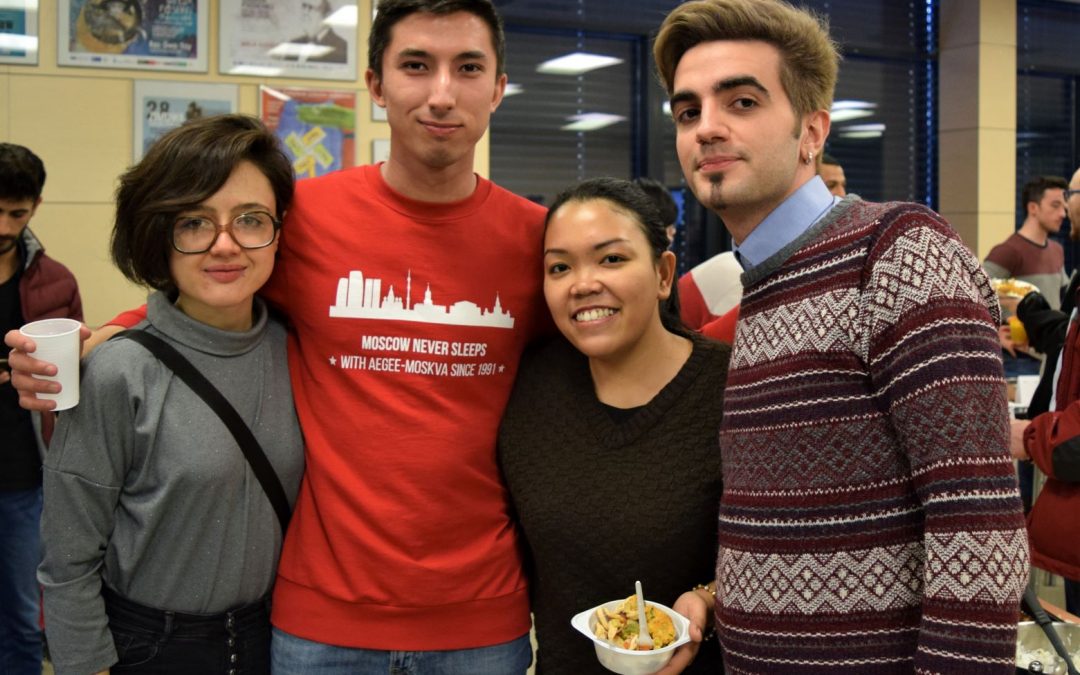
Welcome to UO – survey results
The programme is co-financed by the European Social Fund in the framework of Knowledge Education Development Operational Programme, non-competition project Increasing competencies of academic staff and institutions’ potential to receive people from abroad – Welcome...
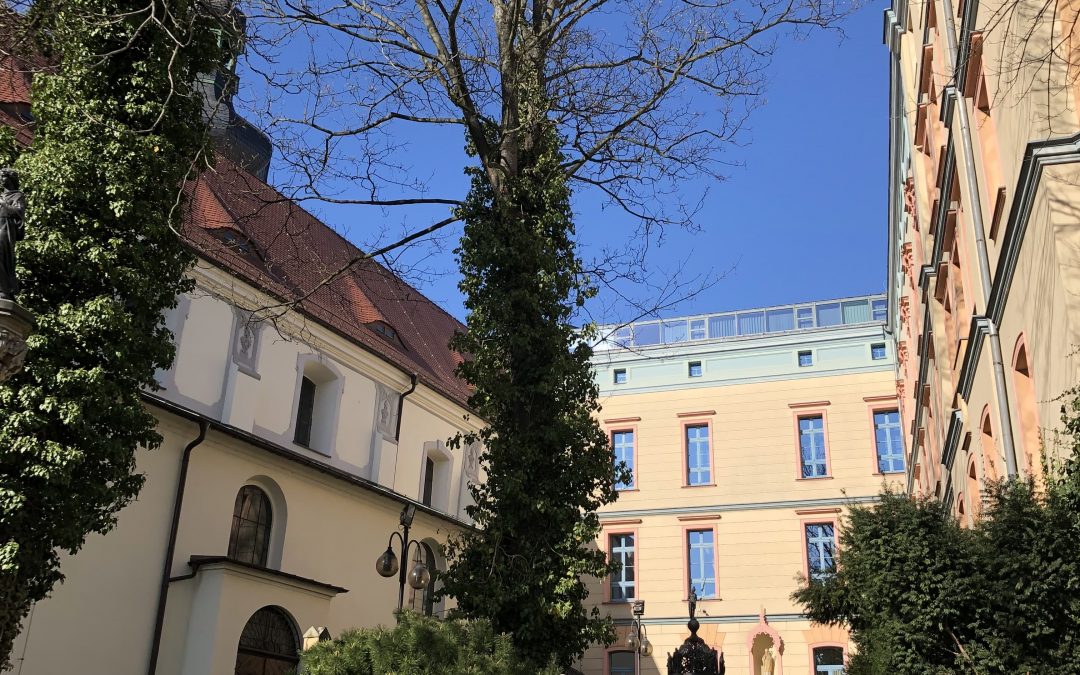
First stage of loosening coronavirus restrictions
Dear Students! Polish government has prepared a 4-stage plan which aims to loose gradually coronavirus restrictions . The first stage starts on Monday, April 20 and will lift the following restrictions: Lifting ban on movement in public spaces, esp. parks and...
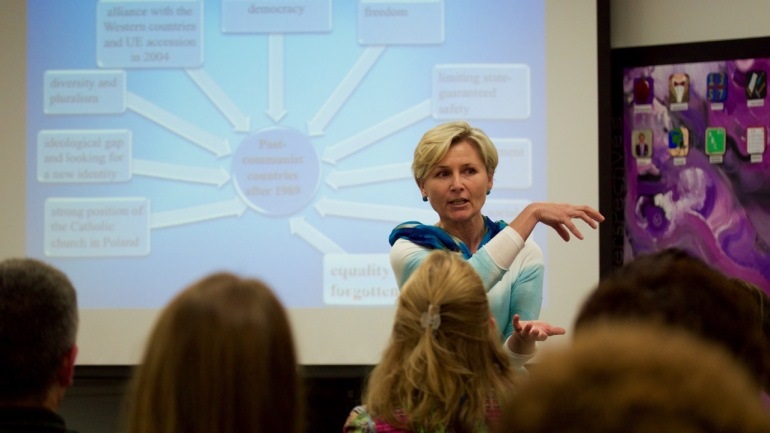
On-line meeting with Plenipotentiary for Equal Treatment
The Rector’s Plenipotentiary for Equal Treatment Dr. Marzanna Pogorzelska invites you to take part in the online-meeting : Dear Students, I would like to meet you on-line and talk how your life looks in these unusual conditions. I wonder how you deal with...

Take part in the webinar – “Polar adventure”
Dear Students! As part of the "Ready, Study, Go! Poland" campaign, the Polish National Agency for Academic Exchange organizes a series of webinars for students under the slogan: ‘Ready, Study, Go! Poland for students in Poland!’. Take part in the fourth webinar...
